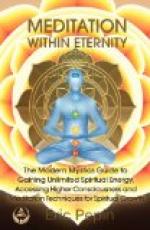A later revelation or dispensation has given what the Illumined One said was a “new commandment,” and it is one more in accord with our ideals of godhood.
“A new commandment I give unto you, that ye love one another.”
But love, like everything which is, means much or little, according as the soul is advanced in knowledge, or is undeveloped.
Perfect and complete love is not selfish; it desires not possession, but union. There is a world of difference between the two words.
“The soul enchained is man, and free from chain is God,” said Sri Ramakrishna.
And the soul is enchained by illusion—by mistaking the effect for the cause, and by regarding the effect as the real, instead of realizing the incompleteness; the limitedness; the unsatisfying character of the changing—the external.
Not that the pursuit of the external is sinful, but it is unsatisfying, while the soul that has caught a glimpse of that wonderful ecstasy of Illumination, has found that which satisfies.
Upon this point of attainment of complete satisfaction, and certainty, all who have experienced the consciousness we are considering seem to agree, according to the testimony here submitted.
CHAPTER V
INSTANCES OF ILLUMINATION AND ITS EFFECTS
The term Illumination seems a fitting description of the state of consciousness which is frequently alluded to as cosmic consciousness. Without the light of understanding, which is a spiritual quality, words themselves are meaningless. When the mind becomes Illumined the spirit of the word is clear and where before the meaning was clouded, or perhaps altogether obscured, there comes to the Illumined One a depth of comprehension undreamed of by the merely sense-conscious person.
If we consider the recorded instances of Illumination found among Occidentals, we will find that such extreme intensity of effort as that which is reported of Sri Ramakrishna, and other Oriental sages, does not appear.
It would seem that the late Dr. Richard Maurice Bucke of Toronto, Canada, was the first in this country to present a specific classification of what he termed the “new” consciousness, and to describe in some detail, he experience of himself and others, notably Walt Whitman.
Dr. Bucke’s first public exposition of these experiences was made at a congress of the British Medical Association in Montreal, Canada, in September of the year 1897. Dr. Bucke described this state of consciousness—a subject that seemed to him at that time to be a new one—in the following words:




